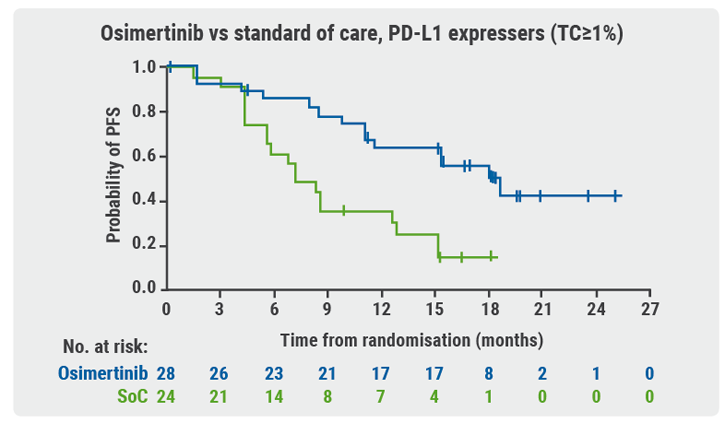"This comparative effectiveness study assessed a large, real-world cohort of patients with advanced NSCLC who previously did not respond to platinum-based chemotherapy," researchers write in JAMA Network Open. "Atezolizumab was associated with longer (overall survival) compared with docetaxel and was on par with nivolumab, supporting current clinical guidelines for systemic therapy for patients with advanced NSCLC in the US."
Dr. Vivek Subbiah of The University of Texas MD Anderson Cancer Center in Houston and his colleagues used nationally representative data from more than 280 U.S. cancer clinics to compare the overall survival of adult patients with advanced NSCLC who were treated with the different drugs.
Study participants had previously received platinum-based chemotherapy and were later treated with one of two immune-checkpoint inhibitors (atezolizumab or nivolumab), or with the chemotherapy drug docetaxel. Patients were followed between 2011 and 2020.
The 3,336 patients included in the main analysis had a mean age of 67 years; 206 patients received atezolizumab, 500 docetaxel and 2,630 nivolumab.
Those treated with atezolizumab were, on average, 2.7 years older than those treated with docetaxel; and those treated with atezolizumab were more likely to have been treated in an academic setting than those receiving nivolumab or docetaxel.
After adjustment for baseline characteristics, atezolizumab was linked with significantly longer overall survival (OS) than docetaxel (adjusted hazard ratio, 0.79) but not nivolumab (adjusted hazard ratio, 1.07). These findings held across all subgroups.
"The advent of immunotherapy has altered the therapy landscape in multiple tumors, including lung cancer," Dr. Subbiah told Reuters Health by email. "Although we know that immune-checkpoint inhibitors outperformed docetaxel in clinical trials, validation in real-world populations is crucial for patient care."
"The knowledge about effectiveness of immunotherapy in a real-world population provides reassurance for practicing oncologists," Dr. Subbiah added. "For the rapidly evolving therapeutic landscape in advanced NSCLC, real-world evidence from head-to-head comparisons can help identify effectiveness associated with real-world use to guide treatment decisions about patient subgroups most likely to benefit in a timely manner."
"To our knowledge, based on literature, this is one of the first analyses of overall survival in a large nationally representative real-world cohort of patients with advanced NSCLC with platinum-resistant cancer," he explained. "In the absence of a randomized clinical trial, real-world electronic health record data can be used to provide evidence of performance of approved therapies in routine clinical practice and help bridge this gap."
Dr. Subbiah noted that limitations of the study include its observations design, which can introduce confounding bias, and that "real-world data did not record performance status - patient level of functioning - in many cases."
Dr. Khaled Hassan, a medical oncologist at Cleveland Clinic in Ohio, who was not involved in the study, welcomed the results.
"The main benefit of this observational study is that it provides evidence that real-life experience is in line with multiple phase III clinical trials that show the superiority of immunotherapy (nivolumab, atezolizumab) over docetaxel in the second-line setting in patients never before treated with immunotherapy," he told Reuters Health by email.
Dr. Hassan noted that both immune-checkpoint inhibitors have already been approved and are recommended by various guidelines. Moreover, he said, "almost all eligible patients are receiving immunotherapy as part of their first line of treatment and thus won't receive single-agent immunotherapy as second line."
Hoffmann-La Roche funded the study. Dr. Subbiah and two other authors have financial relationships with Roche, the parent company of Genentech, which markets atezolizumab.
SOURCE: https://bit.ly/3xnhBav JAMA Network Open, online November 12, 2021.
By Lorraine L. Janeczko
Posted on
Previous Article
« The scope of remote healthcare in hypertension and hyperlipidaemia Next Article
No support for calcium administration during out-of-hospital cardiac arrest »
« The scope of remote healthcare in hypertension and hyperlipidaemia Next Article
No support for calcium administration during out-of-hospital cardiac arrest »
© 2024 Medicom Medical Publishers. All rights reserved. Terms and Conditions | Privacy Policy
HEAD OFFICE
Laarderhoogtweg 25
1101 EB Amsterdam
The Netherlands
T: +31 85 4012 560
E: publishers@medicom-publishers.com


